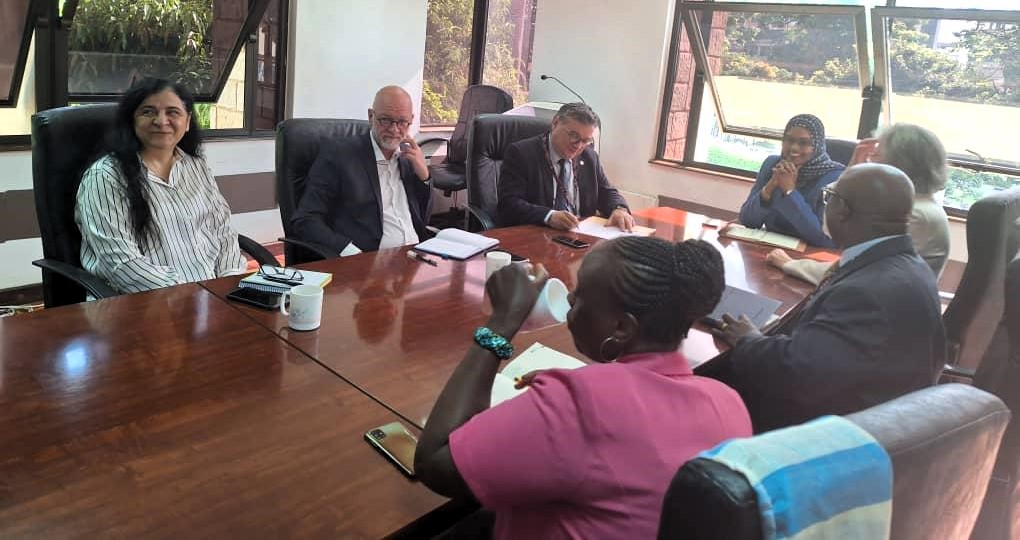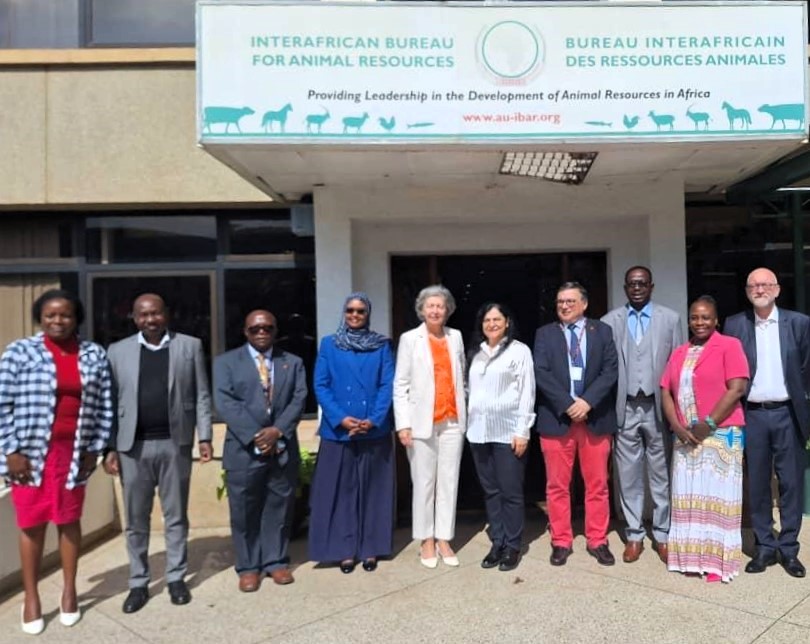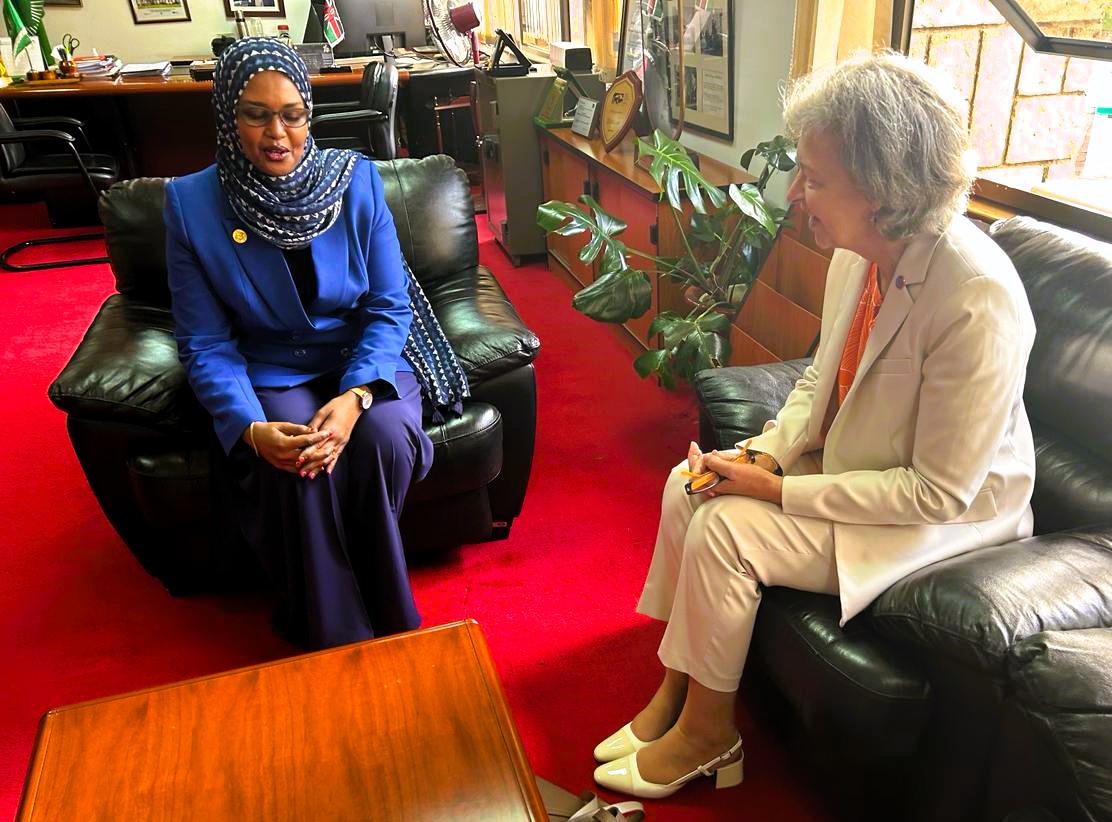


The World Organisation for Animal Health (WOAH) and the African Union Inter-African Bureau for Animal Resources (AU-IBAR) regularly meet to strengthen their collaboration to improve animal health and welfare across Africa.
A courtesy visit by the WOAH Director General, Dr Monique Eloit (her/she) to the Director of AU-IBAR, Dr Huyam Salih (her/she) at the African Union mission in Nairobi was the opportunity to revisit and discuss ongoing collaborations and enhance engagements between the two organisations, born out of a long-standing relationship that goes back several decades.
Dr Eloit expressed the need to prioritise joint areas of interest focusing on the one hand, on the GF-TADs mechanism and the eradication of peste des petits ruminants or PPR, an important disease of sheep and goats, and on the other hand on AU-IBAR’s involvement in the Performance of Veterinary Services (or PVS) Pathway missions, so as to better ensure the implementation of recommendations emanating from these Pathway missions.
On her part, Dr Salih expressed her gratitude to WOAH for its renewed commitment to strengthen their relationship, particularly in terms of the PVS missions, whereby the two organisations aim to evaluate first and then enhance capacities and capabilities of Veterinary Services of the Member countries.
Further discussions identified more areas of high priority and possible synergies, and include aquatic animal health (and the use of antimicrobials in aquaculture), rabies eradication in line with the Zero-by-30 global targets, and the control of vector-borne diseases, which directly impact exports and trade in general, especially when patterns of distribution of vectors are affected by climate change in the region.
Dr Eloit also alluded to the soon-to-be renewed Memorandum of Understanding (MoU) between both organisations, to be signed in Paris, in May 2024 and to possible future engagement of WOAH at ministerial level through the Specialised Technical Committee (STC) of the African Union on Agriculture, Rural Development, Water and Environment.
Given the above needs, and in order to amplify the contributions of both organisations, communication and advocacy were also highlighted as important components of the collaboration. Indeed, said Dr Salih, there is a need to make more stakeholders aware of the valuable activities being implemented in the livestock sector.
Collaboration will be deepened to address priority issues between the two organisations and implement strategies and initiatives, as well as conduct regular monitoring and evaluation to strengthen the ties and emphasising the importance of joint efforts in addressing key challenges and achieving common objectives in the field of animal health and welfare.
All pictures (c) L. Iyadi (woah) 2024
The team from WOAH was led by the Director General, Dr Monique Eloit, the Deputy DG Dr Jean Phillipe Dop, the Sub-Regional Representative for Eastern Africa, Dr Samuel Wakhusama, the WOAH One Health Global Coordinator, Dr Chadia Wannous (she/her), the Regional Programme Officer, Dr Patrick Bastiaensen and the Regional Communications Officer, Ms Lyne Iyadi.
The team from AU-IBAR was led by the Director, Dr. Huyam Salih, accompanied by Dr. Annie Lewa (she/her), Dr. Hiver Boussini, Dr. Joseph Magona, Ms. Francisca Mhuriro and Ms. Fiona Imbali.



